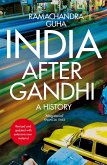In "Young India," Lala Lajpat Rai presents a compelling exploration of the socio-political landscape of early 20th-century India, articulating his vision for a national awakening. Written in a persuasive and eloquent style, the book combines reflective essays with passionate arguments, advocating for self-rule and social reform. Rai adeptly integrates historical context, Indian philosophy, and contemporary political challenges, while addressing the injustices of colonial rule and the pressing need for unity among diverse communities. His call for education, self-reliance, and active participation by youth underscores the ethos of his era, forming a foundational text within the Indian independence movement's literature. Lala Lajpat Rai, known as one of the prominent leaders of the Indian nationalist movement, was deeply influenced by the socio-economic disparities he witnessed during his youth. His diverse experiences, from studying law and participating in various reform movements to his activism in the Indian National Congress, fueled his commitment to advocating for the rights and aspirations of the Indian people. Rai's literary efforts reflect his broader vision of cultural renaissance and political mobilization, making his works resonate widely in the context of national identity. "Young India" is not merely a historical document but a timeless call to action that remains relevant to contemporary readers. It serves as an essential resource for those interested in understanding the origins of the Indian independence movement and the ideals that inspired it. Readers seeking to delve into the passionate articulations of India's struggle for freedom will find Rai's insights both enlightening and motivating, encouraging a deep reflection on the continuing quest for justice and equality.
Dieser Download kann aus rechtlichen Gründen nur mit Rechnungsadresse in A, B, BG, CY, CZ, D, DK, EW, E, FIN, F, GR, H, IRL, I, LT, L, LR, M, NL, PL, P, R, S, SLO, SK ausgeliefert werden.









